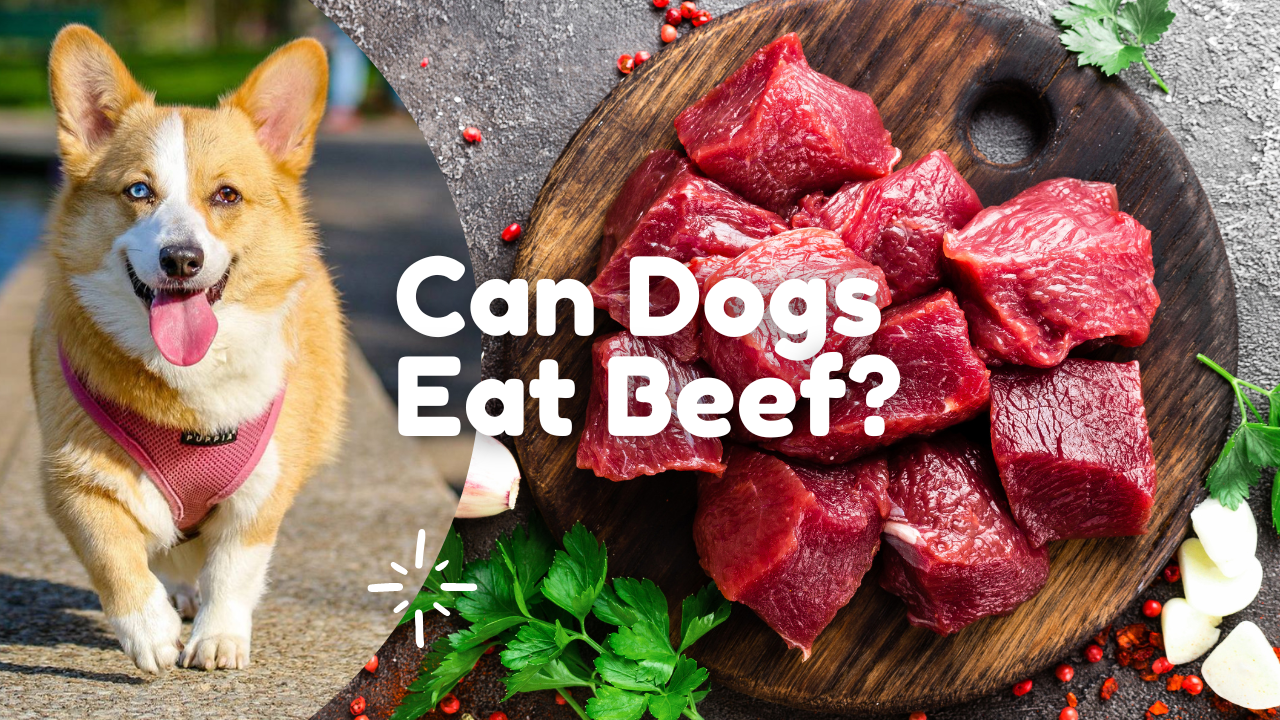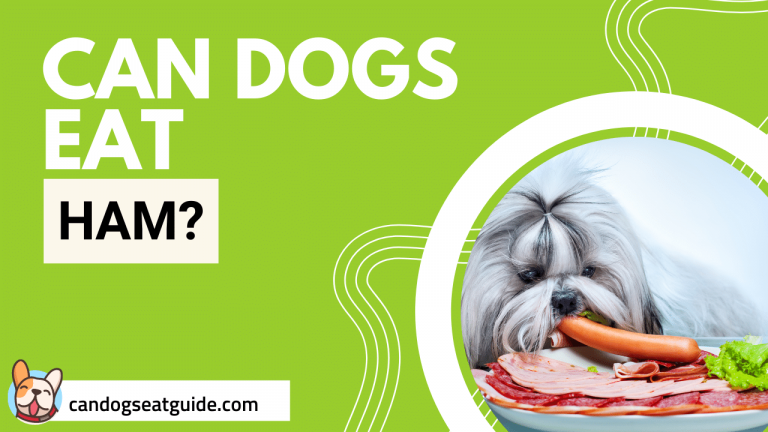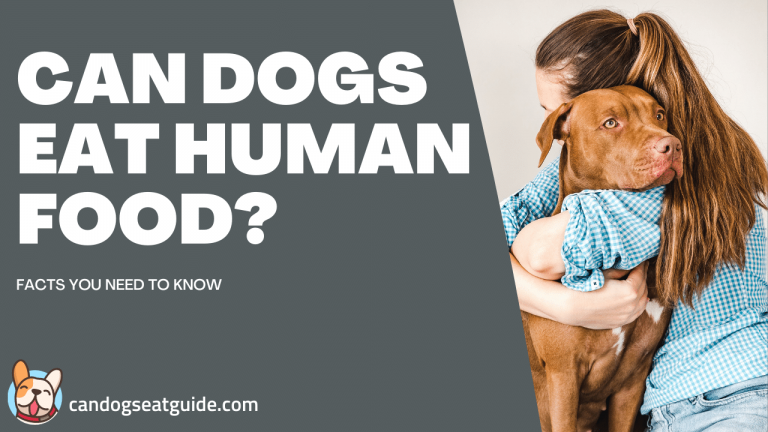Can Dogs Eat Beef?
This is the common and legitimate question many dog owners have. If you are a meat lover, you probably want your four-legged friend to enjoy meat too.
But is it Safe? Which type of meat is best for the dog? Can dogs digest meat?
We have got you covered with the answers to your most asked question about beef and your dog.
Can Dogs Eat Beef?
Yes, dogs can eat beef if given in moderation.
Beef is a rich protein source and has also been used in commercially available pet food. It has also a wide range of nutrients including Vitamin B12 and B6, zinc, selenium, phosphorus, niacin, iron, riboflavin, and choline. In most pet foods, beef products are common ingredients as they are nutritionally balanced and complete your dog’s dietary needs.
Can Dogs Eat All Types of Beef?
There are different types of beef but sometimes you have to think twice before feeding your dog certain types of meat. Let’s see if your dog can eat all types of beef or not.
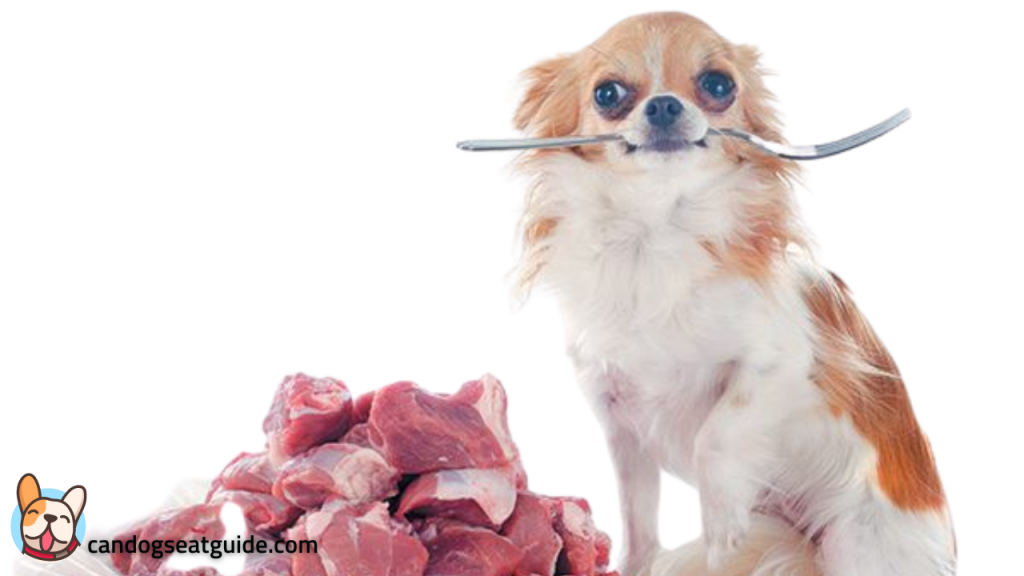
Raw Beef
You should avoid giving raw beef to your dog as there are some risks related to it. Raw beef does not provide a balanced diet for your dog.
So, before changing your dog’s diet you can consult with your vet to ensure that your dog is getting complete nutrients. It can also make your pet sick as raw beef have an increased risk of shedding bacteria like Salmonella or E. coli that can affect your dog’s health.
Dogs that have sensitive stomachs can also face issues like diarrhea, gastroenteritis, and other digestive issues after having raw beef. You can give your dog small pieces of raw beef to see if they can digest it or not but don’t overfeed them with beef.
Beef Bones

You can give your dog beef bones as it is a great way for them to exercise their jaw muscles and clean their teeth. But if the bone has marrow in it, then it can cause pancreatitis as it is very fatty. If your dog requires a low-fat diet then should avoid giving bone marrow to your dog.
Sometimes, hard bones can also damage teeth and can also cause a choking hazard which can result in intestinal obstruction. Therefore, make sure to supervise your dog while giving it raw bones.
Cooked Beef Bones
You should not give your dog cooked beef bones as cooking breaks the honeycomb structure of bones which makes them brittle and likely to snap and splinter. Having cooked bones can also hurt your dog or even pierce their mouth or intestine if they swallow them.
Ground Beef
You can easily feed your dog with ground beef. In order to kill bacteria, you have to cook beef to a safe temperature of at least 160 degrees Fahrenheit. You can use a beef thermometer to check the temperature. But you shouldn’t add any spices to your meat as it can be toxic for your dog.
Beef Broth
Beef broth contains a variety of minerals and collagen that seeps out of the bone into the broth. You can feed beef broth if your dog is feeling dehydrated or refusing any kind of food. Just make sure that you do not add any additional seasoning to the broth as it can be harmful.
How To Feed Your Dog Beef?
- Consult your vet about your pet’s health and diet before making any changes to your pet’s diet.
- Make sure to wash your hands before and after feeding beef to your dog.
- Don’t feed your dog with cooked beef bones as they can pierce their mouth or intestine if they swallow them.
- Make sure to remove fats from beef before feeding beef to your dog.
Health Benefits of Beef for Dogs
Some of the health benefits of beef for your dog are:
- Creates Hormones and Enzymes: Beef is packed with proteins that the dog requires for everything its body does from creating hormones and enzymes to synthesizing new DNA, as well as growing fur, skin tissue, and muscles.
- Enhances Bone Growth: Beef contains plenty of minerals like zinc, iron, selenium, and phosphorus. Phosphorous is required to keep your dog’s bones strong and teeth healthy.
- Prevents Anemia: Iron present in beef helps to prevent anemia and carry oxygen around your pup’s body.
- Improves Functions: Zinc helps to maintain healthy vision, and improve brain and memory function.
- Formation of Red Blood Cells: Vitamins present in beef help your dog to use enzymes properly, prevent anemia, and created red blood cells.
Homemade Beef Recipes
We have got some easy homemade beef recipes for your pup. Let’s have a look at them.
Homemade Beef Stew Dog Treat
Ingredients:
- 1 pound beef stew meat;
- 1/2 cup of diced carrot;
- 1 sweet potato;
- 1/2 cup of diced green beans;
- 1/2 cup of water;
- 1 tbsp of oil.
Method:
- Cook sweet potatoes in the microwave for 5 to 8 minutes.
- Cut the stew into small pieces.
- Cook stew using vegetable oil for 10 minutes.
- Remove beef chunks and reserve the drippings.
- Dice sweet potatoes and heat dripping in low flames.
- Add flour and water to make a thick gravy.
- Put carrots, beans, sweet potatoes, and meat in gravy and give it a stir.
- Cook till carrots are tendered.
- You can serve this to your dog as a treat.
- You can store the remaining in the fridge for a week.
Homemade Beef and Vegetables Dog Treat

Ingredients:
- 2 pounds of ground beef;
- 1 cup of finely chopped carrot;
- 3/4 cup of frozen or fresh peas;
- 1 cup of brown rice;
- 1 cup of rinsed and drained kidney bean;
- 1 cup of small cubes of butternut squash;
- 4 cups of water.
Method:
- In a small cooker, place ground beef topped with beans, rice, carrot, squash, and peas.
- Put four cups of water, and mix everything together.
- Cook for 3 hours on the slow cooker.
- Turn off the heat and cool it completely before serving.
Can I Give Beef Steak To My Dog?
The simple answer to this question is Yes, dogs can have beef steak in moderate amounts. Make sure to remove all small bones and low fats cuts from the steak. Don’t feed your dog raw steak. Instead, cook beef steak at a safe temperature to avoid potentially dangerous contamination and side effects. Let’s have a look at an easy beef steak recipe for dogs.
Beef Steak Recipe For Dogs
Ingredients:
- 4 sirloin steaks – 1/2 inch thick;
- 6-8 small pieces of broccoli florets;
- 1-2 finely chopped pieces of green cabbage leaves.
Method:
- Chop the cabbage leaves finely.
- Steam the broccoli for five minutes and heat up a frying pan.
- Now fry the steaks for 2-3 minutes on each side.
- Put the steak on the plate for 10 minutes and allow the juices to settle.
- Cut the steak into small pieces and mix them into chopped broccoli and cabbage.
Nutrients Present In 100 g Beef
Let’s see the nutrients that are present in 100 g beef:
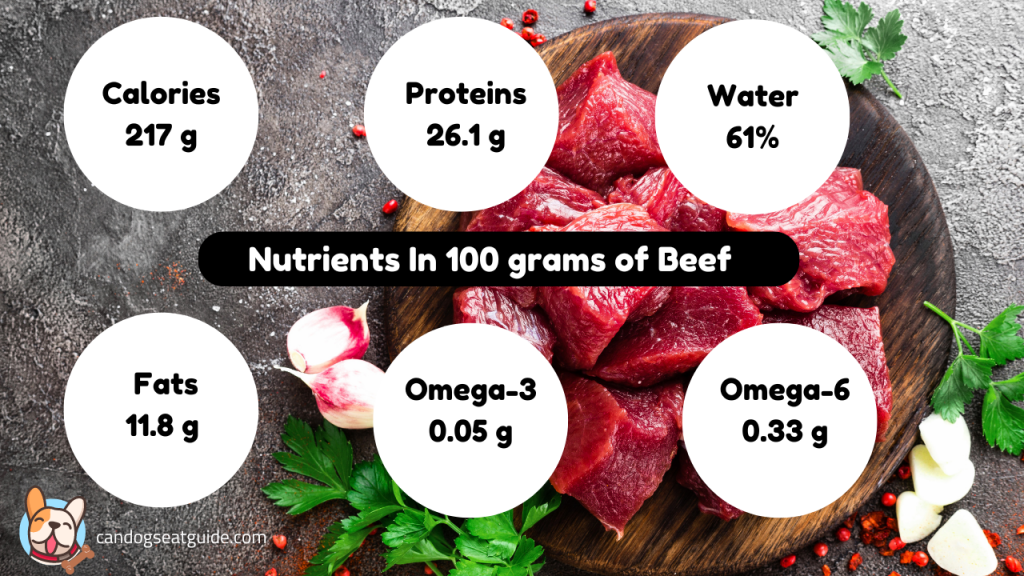
Wrapping Up!
Beef is a rich protein source and has also been used in commercially available pet food. It has also a wide range of nutrients including Vitamin B12 and B6, zinc, selenium, phosphorus, niacin, iron, riboflavin, and choline. Don’t feed your dog with cooked beef bones as they can pierce their mouth or intestine if they swallow them.
FAQs
Can dogs eat Beef?
Yes, dogs can eat beef.
Can I give raw beef to my dog?
You should avoid giving raw beef to your dog as there are some risks related to it. Raw beef does not provide a balanced diet for your dog.
Can I give steak to my dog?
Yes, dogs can have beef steak in moderate amounts. Make sure to remove all small bones and low fats cuts from the steak.
We hope you like the article ‘Can dogs eat beef? You can also check out our other articles.
Can Dogs Eat Turkey Bones? Are They Safe For Dogs?

